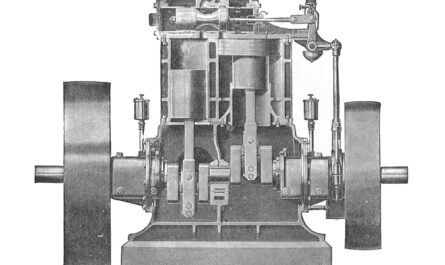Automotive Software Powers the Modern Car
With each new model year, cars are becoming more connected, autonomous, and electric. However, behind every new innovation and feature is sophisticated automotive software powering the modern vehicle. From infotainment and telematics to advanced driver-assistance systems, software is taking a front seat in the auto industry
Connected Car Features Rely on Robust Software
Modern vehicles come equipped with an array of connected car technologies that allow owners to stay connected on the road. Features like built-in navigation with real-time traffic updates, streaming music and media, emergency assistance services, and remote diagnostics all run on specialized automotive software. Ensuring this software works seamlessly and securely is paramount as connectivity becomes more central to the driver experience. Automotive Software must develop robust yet flexible platforms that can support frequent over-the-air updates to the vehicle’s systems. Properly designed connected car software also helps protect drivers’ privacy and the security of their personal information.
Autonomous Driving Depends on Complex Algorithms
As vehicle autonomy increases, so too does the complexity of the underlying software and algorithms. Features like adaptive cruise control, lane keeping assist, automated emergency braking, and even fully self-driving capabilities all rely on sophisticated software to intelligently perceive the vehicle’s environment, navigate roads, and control critical functions like steering and acceleration independently of human input. Developing software capable of safely navigating complex urban environments and responding appropriately to thousands of dynamic scenarios requires immense computing power and advanced artificial intelligence. Automakers are continuously developing and refining autonomous driving software through billions of miles of real-world and simulated testing.
Electrification Shifts Engineering Focus to Software
The shift to electric vehicles is fundamentally changing Automotive Software engineering, with software playing an increasingly vital role. Compared to a traditional gas-powered engine with mechanical components, electric powertrains consist of sophisticated control software, electric motors, power inverters, and high-voltage battery management systems. EVs require software to optimize energy usage from the battery, distribute torque between motors, manage thermal loads across systems, customize driver modes, integrate with charging networks, and more. With few moving parts in an EV powertrain, software engineers are responsible for coordinating all its critical functions intelligently and reliably. With electrified platforms, software engineering skills are more crucial than ever for automakers to develop.
Software Updates Can Enhance Vehicle Safety and Performance
One benefit of advanced automotive electronic systems is the ability to issue wireless software updates to vehicles over their lifetime, just like consumer electronics. These over-the-air updates allow automakers to continually enhance driver assistance features, infotainment interfaces, and powertrain controls through new software versions. Importantly, updates provide an opportunity to patch any discovered security vulnerabilities. Some automakers regularly issue updates every few months to improve things like accident avoidance technologies based on real-world learnings. Updates also give customers access to new features and personalization options, enhancing long-term vehicle value. The need for flexible, update-ready software architecture will only grow as vehicles add advanced capabilities post-production.
Cybersecurity Demands Vigilance From Automakers
With vehicles becoming more connected than ever, cybersecurity is an essential consideration for automotive software design. As hacks on vehicles increase, automakers must ensure their electronic systems, networks, and wireless protocols are properly secured and authenticated. Security weaknesses could enable threats like remote vehicle hijacking, theft of personal owner information, or manipulation of safety-critical functions. Developing “defense-in-depth” protections like network segmentation, encryption protocols, and intrusion detection is critical. Software teams must also prepare response plans for potential exploits; over-the-air updates provide a means to rapidly patch any uncovered vulnerabilities. As cyber-risks evolve continuously, automakers will need to maintain ongoing security diligence through the useful life of increasingly smart vehicles.
Regulations Shape Automotive Software Development
Automotive software engineering also exists within a complex web of industry regulations. Complying with functional safety standards like ISO 26262 ensures driver assistance and active safety software can reliably operate as intended. Other regulations address electronics system security, autonomous vehicle performance, and product cybersecurity. Software testing protocols must prove software builds meet all applicable industry and regional legal requirements before deployment. With autonomous driving software in particular, approaches will need continual refinement and documentation to satisfy evolving regulations. Harmonizing testing standards globally will also become more important as software-based technologies spread across borders. Regulatory collaboration with governments helps advance safety-focused innovation while prioritizing driver and passenger protection.
As the influence of automotive software grows, its development will require advanced technical talent and multidisciplinary skills. Automakers must attract software, electrical, and AI engineers equipped for challenges like managing autonomous vehicle lidar/camera data streams, developing sophisticated EV control algorithms, and designing secure over-the-air systems. Collaboration with tech firms possessing complementary expertise will also prove valuable. The ability to regularly update older vehicles through their entire lifecycles adds further complexity. Ultimately, automotive software skills will be crucial for designing the high-tech, connected, and autonomous vehicles of tomorrow. Those automakers best positioned to develop and retain leading software engineering talent will be well equipped to pioneer the innovations shaping mobility’s future.
*Note:
1. Source: Coherent Market Insights, Public sources, Desk research
2. We have leveraged AI tools to mine information and compile it


